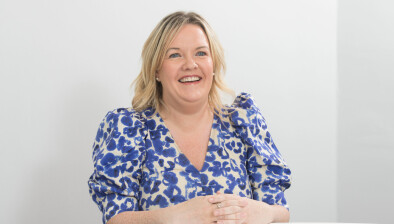Rhian Morgan: Nil rate bands explained – what you need to know when it comes to inheritance tax

Rhian Morgan
In light of proposed changes by the Prime Minister, financial planning expert Rhian Morgan delves into the details of the nil-rate bands in the context of inheritance tax.
With the Prime Minister proposing changes to inheritance tax and potentially looking at the possibility of abolishing it completely in future years, it is important to understand the current nil-rate bands and what they mean for individuals and families. 70% of people are unaware of the nil-rate band and with many changes being proposed, it is vital the correct information is provided.
The nil-rate band refers to the threshold below which an estate is not liable to inheritance tax. Every individual has a nil-rate band, which currently stands at £325,000 for the financial year 2023/24.
This is set against each person’s estate, which includes savings, investments, possessions, and property, and means that any amount below £325,000 is currently chargeable at a rate of 0% – or nothing, to put it simply. Any part of the estate exceeding the nil-rate band is usually taxable at a rate of 40%.
There is also a second band, known as the ‘residence nil-rate band’, which was introduced in 2017 in addition to the nil-rate band. It can be applied when the deceased person leaves a residence, or the proceeds from the sale of a residence to their direct descendants.
Direct descendants mean children (including stepchildren, adopted children and foster children) and grandchildren. It is also possible for the spouse or civil partner of direct descendants to potentially qualify for the relief.
The residence nil-rate band rate stands at up to £175,000 for the year 2023/24. If the property is valued at less than £175,000 then only the value of the property will receive relief, the remaining allowance is lost. Rules around residence nil-rate band can be complex to negotiate, and we would recommend consulting a qualified financial planner.
What are the rules for couples?
For married couples and civil partners inheriting from each other, inheritance tax charges are deferred until the death of the second person.
Upon the death of the first person in the marriage or civil partnership, no inheritance tax is payable on elements passed to a spouse, and it is possible for the deceased person’s unused nil-rate band and residence nil rate band allowances to also be inherited by their surviving spouse.
Any inheritance tax above the cumulative allowances becomes chargeable upon the death of the second person. If, however, the first person leaves part of their estate to other beneficiaries aside from their spouse, their estate may be subject to inheritance tax, therefore using up some, or all, of their allowances.
What does the frozen threshold mean for individuals and families?
Earlier this year, the Chancellor of the Exchequer announced that the inheritance tax threshold is now frozen until April 2028. This means that the £325,000 threshold will not increase until at least 2028, meaning that as assets grow in value, more estates will be subject to inheritance tax.
Individuals can mitigate the effects of this through multiple routes, for example, through lifetime gifts, careful wealth planning, or through charitable giving.
With the current nil-rate band threshold said to unfreeze in 2028, we may see thresholds increase or decrease near this date. However, with the Prime Minister’s latest discussions on inheritance tax, we could see changes to the inheritance tax budget discussed as early as 2024.
It is important to familiarise yourself with the nil-rate bands and IHT rates and how they affect you, especially if you are already in the process of passing wealth to your family. Consulting with a trusted financial planning service can help you learn how best to maximise your wealth for the benefit of your family and descendants.
The information in this article should not be taken as advice.
![]()
Rhian Morgan is a financial planner at Acumen Financial Planning and director at The Financial Planning Group







